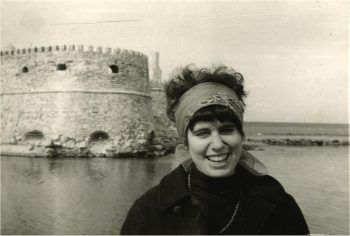Johanna Fateman at the NYRB:
 In her work, rage is authority; her imperious voice and dirty mouth make for a feminist literature empty of caveats and equivocation. And reading her now, beyond the anti-porn intransigence she’s both reviled and revered for, one feels a prescient apocalyptic urgency, one perfectly calibrated, it seems, to the high stakes of our time. In the #MeToo era, women’s unsparing public testimony—in granular detail and dizzying quantity—is at the heart of a mainstream cultural reckoning with sexual violence and harassment. Such frank accounts were not at the forefront, though, or even in the picture, of early second-wave feminism. Dworkin’s emergence as a militant figure of the women’s movement in New York was part of a turn: she was one of the first writers to use her own experiences of rape and battery in a revolutionary analysis of male supremacy. This is not to say that Dworkin’s books are all autobiographical, but in all of her work—from her frequently cited polemics to her desolate, little-known works of autofiction—she boldly identifies herself with victims, unafraid to brand herself with an image of female abjection and sexual shame in the name of justice.
In her work, rage is authority; her imperious voice and dirty mouth make for a feminist literature empty of caveats and equivocation. And reading her now, beyond the anti-porn intransigence she’s both reviled and revered for, one feels a prescient apocalyptic urgency, one perfectly calibrated, it seems, to the high stakes of our time. In the #MeToo era, women’s unsparing public testimony—in granular detail and dizzying quantity—is at the heart of a mainstream cultural reckoning with sexual violence and harassment. Such frank accounts were not at the forefront, though, or even in the picture, of early second-wave feminism. Dworkin’s emergence as a militant figure of the women’s movement in New York was part of a turn: she was one of the first writers to use her own experiences of rape and battery in a revolutionary analysis of male supremacy. This is not to say that Dworkin’s books are all autobiographical, but in all of her work—from her frequently cited polemics to her desolate, little-known works of autofiction—she boldly identifies herself with victims, unafraid to brand herself with an image of female abjection and sexual shame in the name of justice.
more here.
